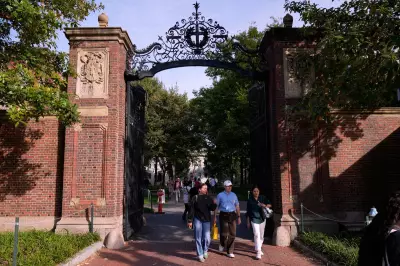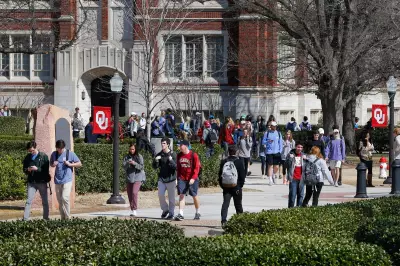
In an inspiring initiative that's challenging educational inequality, a simple yet profound campaign is changing lives across England's most deprived communities. The programme connects university graduates with school pupils through the powerful medium of handwritten letters.
The Power of Personal Connection
Current university students and recent graduates are sharing their authentic experiences with younger students in disadvantaged areas. These aren't formal prospectuses or statistical reports – they're personal stories filled with genuine challenges, triumphs, and practical advice about university life.
One participant described the impact powerfully: "It completely changed my perspective on what was possible for someone like me." This sentiment echoes throughout the programme, which specifically targets schools where university attendance has traditionally been low.
Breaking Down Barriers
The initiative tackles several critical barriers that often prevent bright students from considering higher education:
- Psychological barriers: Demystifying university life for first-generation potential students
- Financial concerns: Addressing real worries about costs and funding options
- Social isolation: Showing that students from similar backgrounds can thrive
- Academic confidence: Building belief in their ability to succeed
Measurable Impact on Student Ambitions
Early results demonstrate the campaign's effectiveness. Schools participating in the programme report significant increases in the number of students seriously considering university applications. Teachers observe transformed attitudes among pupils who previously saw higher education as "not for people like us."
The approach works because it replaces abstract concepts with relatable human experiences. As one educator noted: "When our students read about someone who grew up in circumstances like theirs now succeeding at university, it makes the possibility feel real and achievable."
A Sustainable Model for Change
What makes this initiative particularly promising is its scalability and sustainability. The programme operates through partnerships between universities and local schools, creating a continuous pipeline of support. Current participants often become future letter-writers, creating a self-sustaining cycle of encouragement.
This grassroots approach complements existing outreach efforts by adding a deeply personal element that resonates with young people making crucial decisions about their future.
As educational inequalities persist across the UK, this letter-writing campaign demonstrates that sometimes the most effective solutions are also the most human-centred. By connecting students through shared experiences and honest storytelling, it's opening doors that many young people never knew existed.





